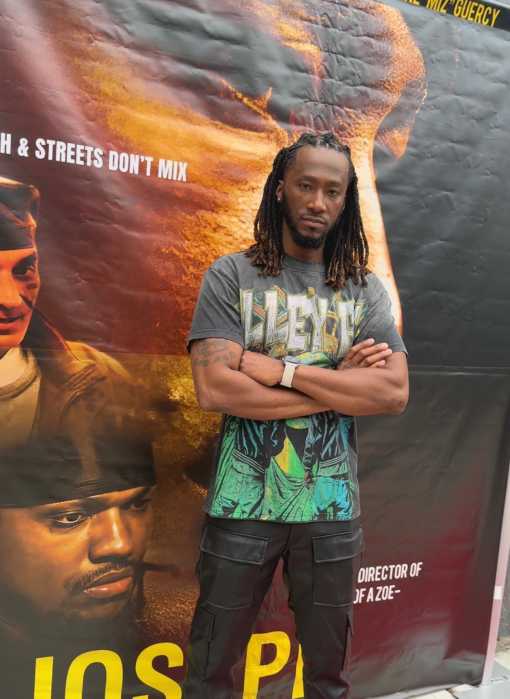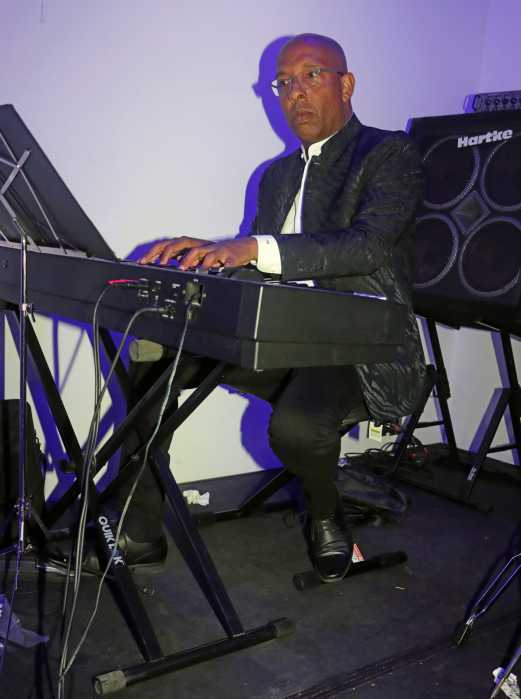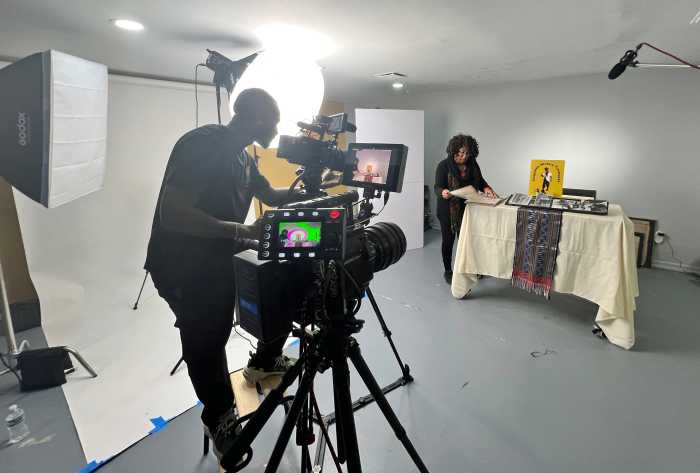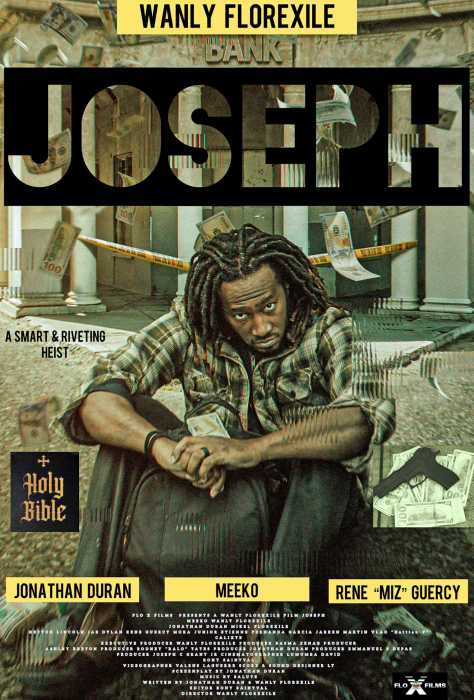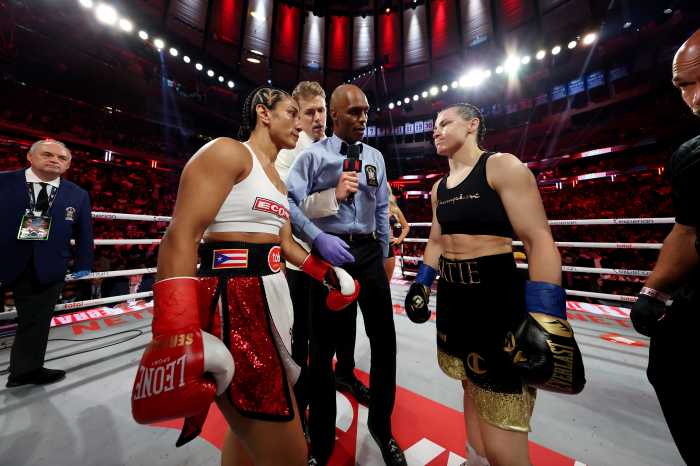“ON YOUR WAY UP, LIFT ME UP, ON YOUR WAY DOWN, DON’T LET ME DOWN.”
According to David “Ziggy” Marley, the eldest son of Rita and Robert Nesta Marley, one particular recollection was a conversation with his father Robert Nesta Marley who told him “on your way up, lift me up– on your way down, don’t let me down.”
The offspring fulfilled the admonition recently when he produced “One Love” a biopic which endorses obedience to both parents.
On the first day of its screening, the film grossed $14 million breaking box office records for the movie industry. By the weekend, the film shattered records registering a whopping $80 million and topping the staggering list of new releases. Whether or not Ziggy Marley lifted his father up by exposing a version he is preferred, a global audience confirms the offspring’s perspective and are convinced he certainly did not let him down.
The film not only honors an alleged hoped-for wish from a legend/father, it secures an epitaph generations throughout the world will be able to see and appreciate.
Released globally on Valentine’s Day — on the most romance-focused calendar date of any year — Ziggy and siblings Stephen and Cedella amplified, personified and almost deified the man and woman who gave them life.
From teenage courtship, marriage, musical accompaniment, strife, separation, quarrels, spiritual enlightenment, near-assassination, medical hazards, to a public burial watched by national audiences encompassing world populations, a love story unfolds to reveal a family’s enduring pride and love for two guardians whose humble beginnings blossomed and bloomed to flower and seed populations.
Their enduring relationship through hazards and interferences deliver a testament the family sold to investors as gospel worth shouting.
Although critics might argue the absence or preponderance on Marley’s alleged passion for soccer, women and Africa, it is clear the aim of producers and investors in the film was to portray a love story between a couple of Rastafarians who changed the trajectory of an island’s music industry, its tourism, global perceptions, and an admirable lifestyle.
For all the rumored dalliances by the king, the family ensures audiences that the monarch was not clueless but privy to the notion that even queens stray.
The fact Marley had a roving eye for women, Ziggy and family injected a line to confirm acknowledgement of his wife’s indiscretions.
Reggae music provides the soundtrack to the tribute, and why not?
He’s the king of the genre.
He was the catalyst to skyrocket the beat.
That there was no inclusion of his dynamic performances at the Apollo Theater in Harlem, Central Park or Madison Square Garden might be a geographic misstep New Yorkers will have to yield.
However, Marley magic prevailed with snippets culled from performances in mostly European nations which regale showcases on that continent.
Like Africans who might feel slighted by the hint of Robert Mugabe’s victorious conquest in Zimbabwe and Marley’s stirring independence celebration in the southern African nation reggaefarians here must reconcile in knowing Marley stole the Garden party by upstaging the headline act.
And that after his performance in this city, patrons exited the 20,000 capacity seater — which was sold out on that evening — before the main act walked onstage.
But not to be underwritten was the fact that Don Taylor who brokered that event with his friend/radio personality/and emcee Frankie Crocker is villianized in the film.
Taylor as manager is first portrayed accepting what appears to be monies from an African emissary. For that he is given a beat-down by the star.
Truth be told, Taylor was no pushover. Those who felt his ire will attest of his thug-like tendencies. He was a serious businessman who held his own.
Taylor deserves his own biopic.
As a matter if fact, he elevated his status from Kingston bad boy to Kingston’s success story Maker.
Taylor in his own biography “Marley and Me” detailed his youth living on Kingston’s waterfront.
Abandoned by his parents, like Marley, his father was white.
How he emerged a manager to American groups such as Anthony and the Imperials, LA Reid & BabyFace,
Jackie Wilson, Martha and the Vandellas and numerous rhythm and blues recorders, deserves its own biopic.
Taylor was shot with Marley and his bride Rita in 1976 inside 56 Hope Road where Marley lived and rehearsed for the historic Smile Jamaica concert, which is revered a unifying dateline for the rival two political parties — Jamaica Labour Party and Peoples National Party. Taylor received the most bullets from the assault and afterwards walked with a limp as proof of his near-death experience.
Taylor was airlifted to Miami, Florida to be treated for wounds to his riddled body.
He survived and ironically more than a decade after Marley’s untimely death in 1981, he too died in Miami, Florida in 1999.
By the way Taylor was born Feb. 10, four days after Marley’s birth date.
Needless to say, it was Taylor’s vision of a massive concert to unite the rival politicians in Jamaica.
Negated from the script Taylor’s effort of enabling a peace concert where two leaders took to the stage and with Marley, formed a triumvirate cheered by multitudes.
Taylor should also be credited for sealing a deal with Island Records founder Chris Blackwell — who is portrayed meek, accommodating and compliant.
Taylor is unfairly portrayed in the film which minimizes his contribution from 1974 to Marley’s last days in 1981.
The cheap scene of a messiah-like Marley contradicts a relationship which yielded profits far more than alleged thievery in Africa.
Fact or fiction Taylor’s legacy should not be minimized to the victim of a stomping episode.
That prior to the confrontation Taylor was presented as a loyal advocate detracts from the Four Star presentation Paramount Pictures promoted and belittles the credibility of the production.
In addition, another disputed absence involves the
scenes spotlighting Marley’s friendship with Allan Skill Cole.
Probably languishing on the studios’ cutting floors Cole was the undisputed bestie, trusted confidante whose role should have been magnified.
Together they shared the One Love sense of purpose and their kinship was renowned.
Undeniably, they kicked ball, traveled and probably documented more than the lyrics Three Little Birds dramatized in the one hour and five minute flick.
Also another troubling episode questions a fiery atmosphere a young Marley escapes with a figure in pursuit.
Near the end the same burning facade reappears with a youthful Marley being shepherded on horseback by an image dressed in khaki resembling garb worn by Ethiopia’s Emperor Haile Selassie I.
Still, unquestionable and indelible to the feature are stellar performances by actors Kingsley Ben Adir and Lashana Lynch.
Together they delivered authentic channeling of the stars/parents/Rastafarians/
They nailed it.
Despite warts “One Love” the biopic offers a proud achievement for Jamaica.
See it before it disappears.Catch You On the Inside!


